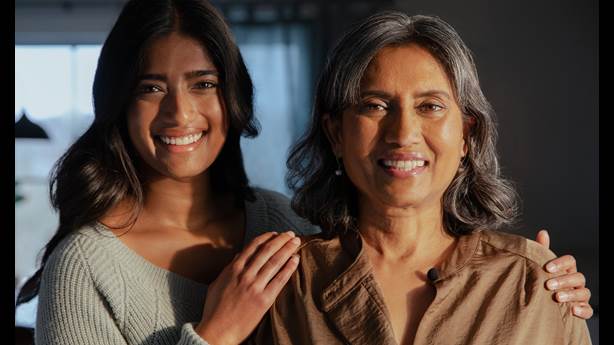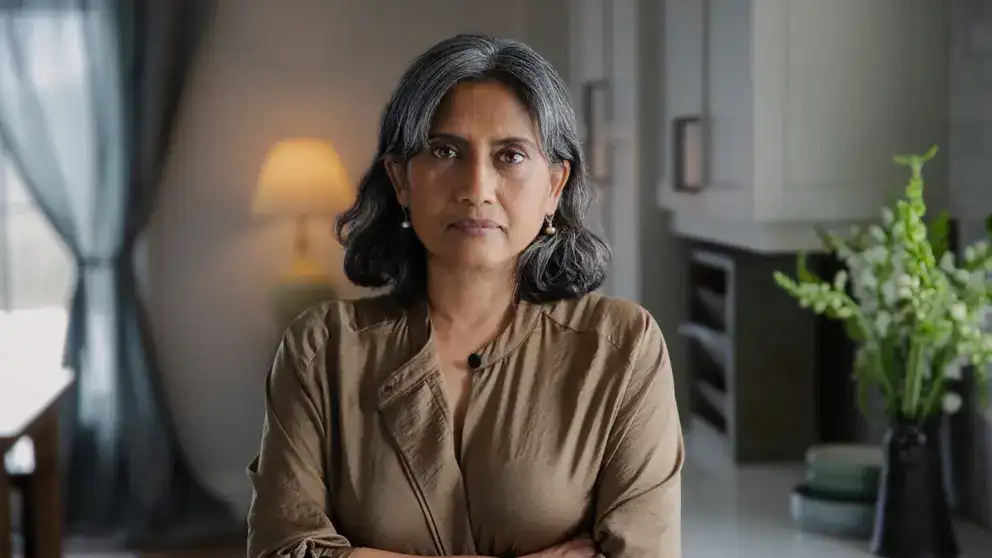Garima Dwivedi doesn’t get headaches. So, when her head began to hurt while picking up a friend from the airport, it came as a surprise. The pain was so bad that she drove herself to her family physician instead of going to work.
Her doctor diagnosed a sinus infection and prescribed antibiotics.
The pain continued throughout the night and she had to stay home from work the next day. That afternoon, her son got back from school to find her having a seizure. Her daughter came home soon after and rushed Garima to the walk-in clinic.
Her speech was slurred and nonsensical as she tried to answer the doctor’s questions. An ambulance was called and Garima was taken to the hospital.

Garima with her daughter, Ila
After undergoing a brain scan, she was immediately transferred to another hospital with a stroke centre. Her brain was bleeding; she was having a stroke.
A promise made
The stroke had impacted the part of her brain that affects language, so she began her recovery relearning how to write. She was put on blood-thinning medication, which impacted her periods. The constant bleeding meant she had to have several transfusions because her iron was so low. A low-grade headache permeated most of her days.
Nine years later, Garima is mostly back to her normal self, except for what she describes as a few little things: missing words when she’s tired and trouble remembering names in her first and third language, Hindi and French, which she did not use much during the early days and months of recovery.
Aside from the occasional struggle while talking, Garima believes that she’s doing better and feels fortunate to have recovered so far. “It could have been a lot worse,” she reflects.
An indispensable part of her recovery journey was a promise she made to herself to get involved and raise awareness of stroke to help other women “I made a decision after I had the stroke that I would give my time and make a difference.”
Garima spoke at the Canadian Partnership for Stroke Recovery conference mere months after her stroke and has been a part of their community advisory group. “I want women to know the signs of stroke, and I want them to be aware that it’s not just men and it’s not just when you’re older.”
“Seeing yourself in someone else’s story can make all the difference,” she says. “As women, we get so busy that sometimes we don’t have time to tell our stories. But it’s important we do.”
Research is key
It’s a fact that 2/3 of heart and stroke clinical research has been based on men. Garima wants to see that change. “If there was more research on stroke in women, maybe they would find that women present differently,” she says. “And we could help more women earlier.”
In hindsight, Garima isn’t sure anyone could have identified she was having a stroke. In the beginning, she was not showing any of the most common signs we are aware of today; she was able to drive, talk, and lift both arms.
She didn’t have any history of stroke; a sinus infection was a plausible diagnosis. “You’re dependent on the system,” she says. “You know, you just believe.”
But she wonders. With more research and more awareness, could her stroke have been diagnosed on Monday instead of Tuesday? Would she have been taken straight to the stroke centre instead of being transferred later?
Whatever the implications for her own story, she believes more research will make a difference in the lives of women.
- Know the signs of stroke.
- Learn more about women, heart disease and stroke.
